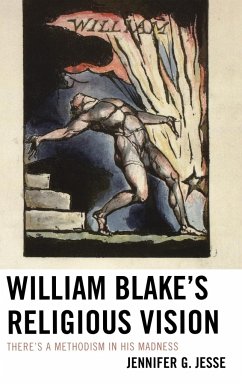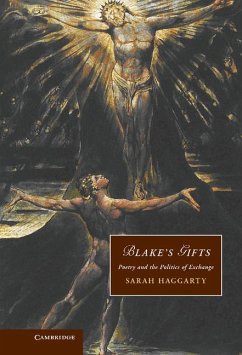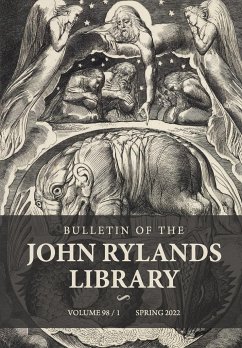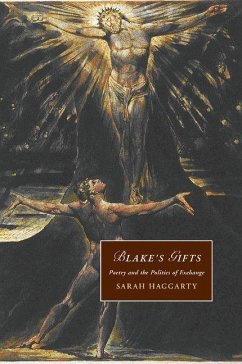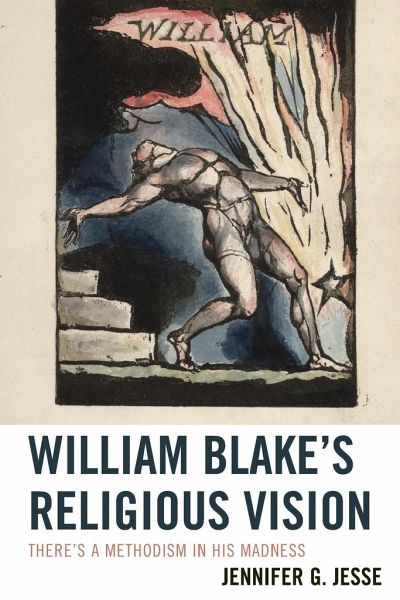
William Blake's Religious Vision
There's a Methodism in His Madness
Versandkostenfrei!
Versandfertig in 1-2 Wochen
65,99 €
inkl. MwSt.
Weitere Ausgaben:

PAYBACK Punkte
33 °P sammeln!
Analyzing Blake’s works theologically through a wide-angled lens that encompasses the major religious movements he addressed in his art, Jesse concludes Blake was a theological moderate who defended an evangelical faith akin to the Methodism of John Wesley. She argues that, once we collate the different messages he constructed for each of his target audiences, we find him advocating a system that would have been recognized by his contemporaries as Wesleyan in character.





